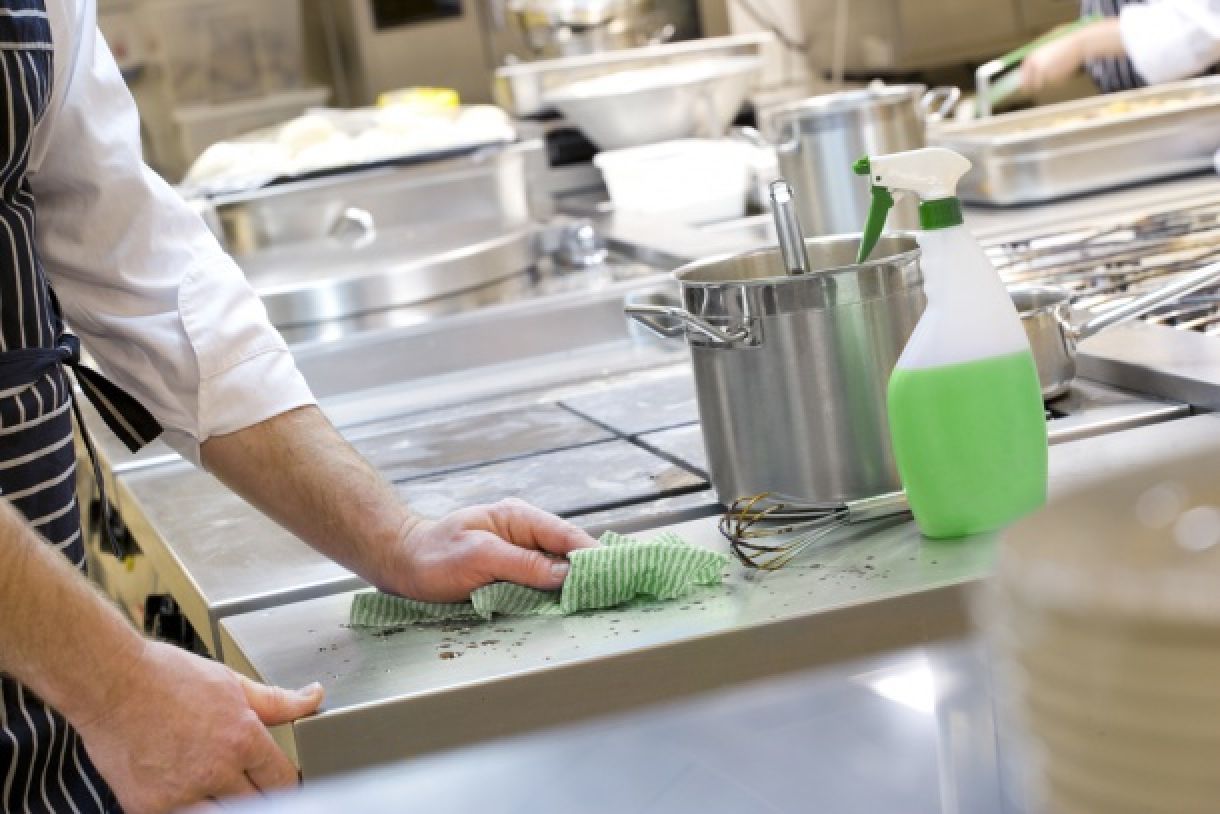Food hygiene issue such as a poisoning outbreaks can have be a impact for a business, such as:
- Damage to reputation resulting loss in trade
- Fines
- Temporary or permanent closure
- Prosecution of directors and officers
Food safety legislation is enforced by environmental health officers (EHOs) at a local district or county council level. The four main things to remember for good hygiene are the 4Cs:
You can use the 4Cs to prevent the most common food safety problems. The layout, design, construction, site and size of kitchens must allow for easy maintenance and cleaning to take place. If designing an Event Kitchen, you can always use the experienced Jongor CAD Team to assist with the sensible design of an Event Kitchen.
Common causes of hygiene issues
Food poisoning is an illness caused by eating food contaminated with bacteria, viruses or toxins, known as “pathogenic micro-organisms”. The most common causes of food poisoning are:
- Not reheating / cooking food to a high enough temperature (+75°C for 30 seconds)
- Storing hot food below 63°C
- Cooling food too slowly (needs to be within 90 minutes)
- Using food that is already contaminated
- Not defrosting frozen food properly before it is cooked
- Cross contamination of raw to cooked food
The most high risk foods which are associated with food poisoning tend to be high in protein and moisture. These include meat and poultry and their related products (burgers, sausages, stocks etc.), dairy products, eggs, seafood and rice.
All of the above can be easily avoided by following good practices. For example, storing cooked foods in Banquet Carts ensures that meals are kept at the optimum temperate until serving, using colour coded chopping boards will minimise the risk of cross contamination, using Blast Chillers to cool food quickly and having adequate hand wash facilities will ensure personal hygiene is maintained.
Storing food safely
It is very important to store food properly to keep it safe, to protect it from harmful bacteria, chemicals and objects falling into food. You'll need to store different types of food by storing in:
Staff training
By law, food business operators must ensure that food handlers receive the appropriate supervision and training in food hygiene, which is in-line with the area they work in and will enable them to handle food in the safest way.
The skills taught in official training programmes can also be learned by:
- training on-the-job
- self-study
- relevant prior experience
Personal hygiene
To keep food safe, it is essential for you and your staff to have high standards of personal hygiene.
Personal hygiene covers:
- hand washing
- clothing
- fitness for work
- training
Transporting food safely
When you transport food, from your premises to another venue, you must prevent it from becoming contaminated. It is especially important to make sure that:
- food is transported in packaging or containers that protect it from contamination
- chilled and frozen foods are kept at the right temperature
- raw and ready-to-eat foods are kept apart
Those are the basics and more resources are available here. If you'd like to speak to one of our team then contact us.
